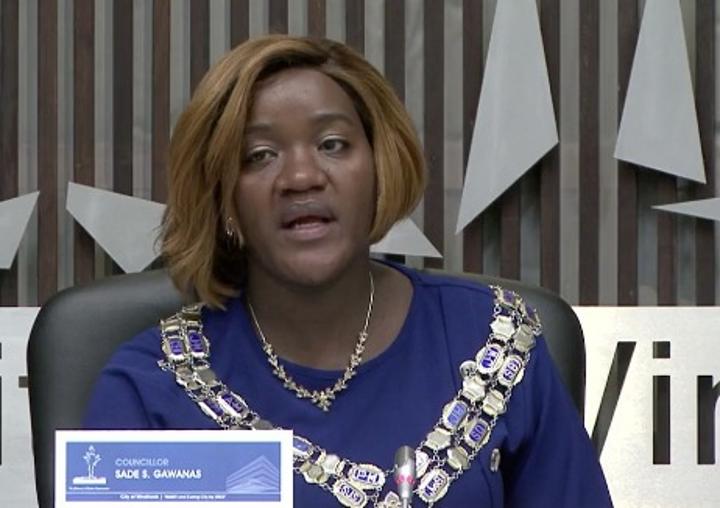Africa-Press – Namibia. Tempers flared at the Windhoek City Council’s first meeting for 2022 after the city’s new mayor, Sade Gawanas, rejected two motions tabled by her immediate predecessor, Job Amupanda, to the surprise of other councillors.
Affirmative Repositioning movement leader Amupanda submitted three motions for discussion and approval at the council meeting on Tuesday.
The motions include a proposal to hold executive managers and members of the city council’s management committee accountable for failures to implement council resolutions.
However, Gawanas, a Landless People’s Movement member who was elected as mayor in December last year, rejected two of Amupanda’s motions before the former mayor could motivate them.
She also blocked other councillors from giving inputs on the motions.
According to her, Amupanda’s motions did not comply with certain standing rules and orders of the council.
In one of his motions, submitted to the council last month, Amupanda wanted the council to discuss and approve a proposal to hold city officials and management committee members accountable for failures to implement council resolutions.
Amupanda argues that, although decisions of the council are by design “silent governance instruments” through which the council implements its plans and programmes, they are currently not being respected by those tasked with implementation.
“As a result, one finds that resolutions passed years ago are not yet implemented. This, at times without reason and consequences. If resolutions are not ignored, they are slowly and lethargically implemented,” he said.
For example, Amupanda argues, the council passed a resolution years ago to cancel cleaning and security tenders and insource cleaners and security guards through municipality-owned companies.
This resolution was only partially implemented, according to Amupanda, and the municipality continues to award cleaning and security tenders to companies not owned by the city.
“What is more profound is the awareness, by the implementers and those supervising the implementers, that there are no consequences that befalls one resulting from the failure to implement council resolutions. This is the disease that this motion seeks to cure,” he said.
In the second motion, Amupanda wanted the council to discuss and approve a proposal to rescind a 2008 council resolution which grants powers to the management committee to nominate and approve a proposal for council members to represent the council at workshops and conferences or to undertake official duties locally or abroad, without consulting the council.
Amupanda argues that this resolution is undemocratic.
“This resolution is still relied upon by uncouth elements to include their kith and kin and to exclude those they disagree with politically,” Amupanda’s resolution reads. “The powers to determine councillors’ participation in official duties [should] revert back to council where all councillors can freely and democratically participate in taking a decision on who should represent council and how.”
Gawanas rejected these motions as inappropriate.
She argued that the motions contradicted already established rules of engagement and the code of conduct regulating relationships between councillors.
Gawanas referred one of the motions – in which Amupanda wanted councillors to be assigned research assistants to help them with the execution of their duties – to the management committee for deliberation.
She, however, argued that assigning research assistants to councillors could have serious financial implications for the municipality.
Some councillors were, however, baffled by Gawanas’ outright rejection of Amupanda’s motion without providing substantive reasons.
For More News And Analysis About Namibia Follow Africa-Press






